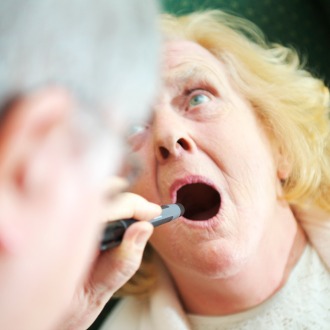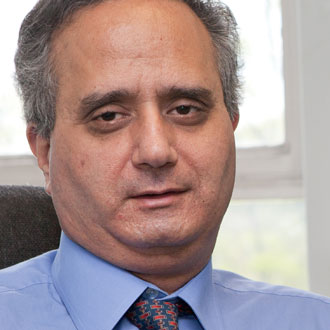Can I refuse to treat a dental abscess?

A patient asks you to help with a problem that ought to be seen by a dentist. What should you do?

Dr Justine Hall: If you are uncertain what you’re treating then refuse
Prescribing for dental problems in primary care is a topic on which GPs are divided. Many feel that prescribing a course of amoxicillin, possibly with metronidazole, is simple enough and helps when dental appointments on the NHS are hard to get, especially if the patient is in pain. Those doctors feel they know that dentists
will almost universally prescribe this course of antibiotics, except in cases of allergy, and the treatment is not hard to replicate.
However, we must remember we are not trained in dentistry, nor do we have the necessary equipment and lighting to see clearly inside a patient’s mouth to establish whether antibiotics are the right approach or whether further intervention such as incision and drainage is needed – or indeed whether another antibiotic may be more appropriate.
A GP would be perfectly within their rights to refuse treatment if they were not sure what they were treating – as long as they signposted the patient to an NHS dentist. A fundamental part of GMC guidelines is only to prescribe within your own competence, no matter how much pressure a patient may exert on you. This has been underlined by recent BMA guidance on treating patients who present with dental problems.
Many surgeries carry a number for their local NHS emergency dental line. Alternatively, the patient can call NHS 111 to find this out. Many LMCs also offer guidance on this to their GPs, but this may differ up and down the country. If in doubt, contact your LMC or indemnity provider for advice.
Dr Justine Hall is a GP in Guildford, Surrey, and planned care clinical lead at NHS Guildford and Waverley CCG

Professor Azeem Majeed: Inform the patient that they need to see a dentist
A study published in 2016 reported that around 600,000 GP consultations annually are for dental problems. The reasons why people present to GPs with dental problems include the poor provision of NHS dental services in many parts of England and the £19.70 charge that some patients have to pay for a dental consultation.
If you decide that your patient may have a dental abscess, assuming there are no red flags (such as signs of spreading infection or sepsis) that would warrant an urgent referral to hospital, the patient should be told that they need to see a dentist. Explain that a dentist is trained to treat dental abscesses but you are not. The dentist has the expertise and equipment needed to assess, carry out suitable investigations (such as dental radiographs), and drain the abscess if this is required. The dentist can also treat any underlying problems, through procedures such as root canal treatment or a tooth extraction, to minimise the risk of the abscess recurring.
You should also explain that issuing an antibiotic is inadvisable for someone with a suspected dental abscess as it won’t address the underlying problem and may mask symptoms, potentially resulting in a worse long-term outcome. Also, it will encourage the development of antimicrobial resistance.
If the patient does not have a regular dentist, tell them they can call NHS 111 or use the NHS Choices website to find out about local services for emergency treatment. It is NHS England and NHS commissioners, not GPs, who are responsible for ensuring the population has access to adequate NHS dental services.
Professor Azeem Majeed is professor of primary care at Imperial College London and a GP in London

The medicolegal view: Carry out an adequate assessment before asking the patient to see a dentist
It is clearly more appropriate for a patient with a dental problem to be seen by a dentist. However, patients may sometimes experience difficulties accessing emergency dental services and may present to their GP instead. Refusing to treat a patient in this situation could give rise to a complaint, and you must be able to demonstrate that you have acted appropriately and in the best interests of the patient before recommending they see a dentist.
You should carry out an adequate assessment of the patient to establish the precise nature of their needs. You should be familiar with NICE guidance on the management of dental abscesses in primary care, as well as local guidelines on patients presenting with dental pain. If the patient is in pain you should provide advice and analgesia if necessary.
GMC guidance says you must always recognise and work within the limits of your competence, and refer the patient to another practitioner if necessary. The GMC also says you should prescribe medicines only if you have adequate knowledge of the patient’s health and are satisfied that doing so serves the patient’s needs.
You should emphasise the need to seek dental treatment and advise the patient how to access local emergency dental services. Good communication about the reasons for your actions will also help to prevent a complaint.
Dr Marika Davies is a medicolegal adviser at the Medical Protection Society
Pulse July survey
Take our July 2025 survey to potentially win £1.000 worth of tokens














